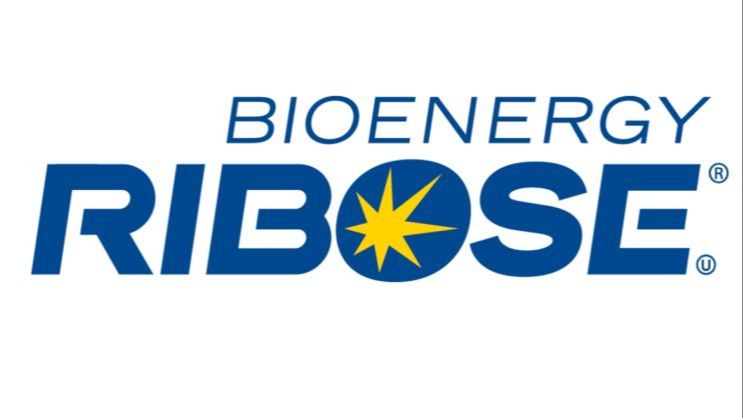What Is Bioenergy Ribose?
What is Bioenergy Ribose?

Bioenergy ribose, also known as D-ribose, is a naturally occurring 5-carbon sugar found in all living cells. It is a key component of ATP (adenosine triphosphate), which provides energy to cells throughout the body (WebMD, R).
Ribose is produced in the body through the pentose phosphate pathway. It can also be manufactured commercially by isolating and purifying ribose from corn, beets, and other natural sources (NCBI).
Supplemental D-ribose is available as a powder that can be mixed into drinks or food. It provides an additional source of ribose to support energy production and other cellular functions (WebMD, Uses and Risks).
Chemical Structure
D-ribose has the molecular formula C5H10O5. This means it contains 5 carbon atoms, 10 hydrogen atoms, and 5 oxygen atoms in each molecule (PubChem). It has the linear, 5-carbon sugar structure characteristic of riboses.
More specifically, the backbone of the ribose molecule consists of a chain of 5 carbon atoms. Each carbon is bonded to a hydroxyl group (-OH), except for the fifth carbon at the end of the chain. The first and third carbons in the chain are chiral centers – they contain an additional hydrogen atom and hydroxyl group attached in either the “up” or “down” position (Wikipedia).
The different spatial arrangements around these chiral centers give rise to the D and L isomers of ribose. In living organisms, the biologically important isomer is D-ribose, which has the hydroxyl groups facing down on carbons 1 and 3. This gives ribose molecules their specific shape and function in energy metabolism and building RNA and DNA (Wikipedia).
Effects on Cellular Energy
Bioenergy Ribose works by increasing cellular levels of ATP (adenosine triphosphate), which serves as the primary energy carrier in cells. ATP provides the energy that powers many critical biological processes. Studies show that supplementing with Bioenergy Ribose can significantly boost ATP levels in both healthy individuals and those with certain medical conditions characterized by impaired cellular energy metabolism.
One clinical trial found that supplementing with Bioenergy Ribose increased ATP levels by up to 54% in healthy adults after just 2 weeks. The improvements were most pronounced in skeletal muscle cells, which rely heavily on ATP for muscle contraction.
Bioenergy Ribose is thought to increase ATP by providing cells with more of the necessary raw material to synthesize it. ATP is made up of adenine, ribose and three phosphate groups. Supplemental ribose delivers more of the raw ribose needed for ATP production.
By improving cellular energy metabolism, Bioenergy Ribose has been shown to enhance exercise performance, reduce fatigue, improve heart function and potentially alleviate symptoms of fibromyalgia, chronic fatigue syndrome and other conditions characterized by low energy metabolism.
Heart Health Benefits
Research has shown that bioenergy ribose can improve heart function in patients with cardiovascular conditions. One study found that taking ribose supplements for just 3 weeks improved heart function and exercise capacity in patients with chronic congestive heart failure (CHF) (Omran, 2004).
In CHF patients, ribose helps restore energy levels in heart muscle cells, which allows the heart to pump more efficiently. Multiple clinical trials have confirmed these benefits in CHF patients taking ribose compared to a placebo (Li, 2021).
Ribose has also been shown to reduce chest pain and feelings of fatigue in people with heart disease. A study in patients with stable angina found that taking ribose supplements for just 3 weeks significantly improved exercise tolerance and decreased the number of angina episodes compared to a placebo group (Omran, 2004).
The researchers concluded that ribose supplementation could be a safe, effective way to improve quality of life in heart patients by reducing chest pain and boosting energy levels.
Exercise Performance
Some research suggests that D-ribose may help enhance athletic performance and endurance. In one study, recreational bodybuilders taking D-ribose were able to complete significantly more repetitions on the bench press and lat pull-down compared to those taking a placebo (Seifert et al., 2017).
Additionally, D-ribose has been shown to help speed muscle recovery after intense exercise. A study in cyclists found that supplementing with D-ribose after strenuous cycling helped restore cellular energy more quickly compared to exercise alone (Seifert et al., 2018). This faster recovery time may translate to improved performance.
The beneficial effects seem most pronounced in recreational athletes and those with lower fitness levels. More research is still needed, but current evidence suggests D-ribose supplements may aid athletic training by enhancing performance and accelerating post-exercise recovery.
Chronic Fatigue
D-ribose has been widely researched for its effects on chronic fatigue syndrome (CFS). CFS is characterized by extreme fatigue, muscle pain, headaches, poor sleep, and cognitive dysfunction.
Several studies have shown D-ribose can help alleviate core symptoms of CFS like tiredness and muscle pain. In one placebo-controlled trial in 41 CFS patients, 5 grams of D-ribose taken 3 times per day led to significant improvements in energy levels, sleep, mental clarity, pain threshold and well-being after just 12 days (Teitelbaum et al. 2006).
Researchers believe D-ribose helps chronic fatigue by improving cellular energy synthesis in muscles. Since CFS patients often have reduced energy reserves, supplementing with D-ribose may boost energy levels by stimulating ATP regeneration (VeryWell Health).
The standard therapeutic dosage for CFS is 5 grams, three times per day, with the largest dose first thing in the morning. Lower doses of 2-3 grams per day can also provide benefits.
Fibromyalgia
D-Ribose has been shown to benefit patients with fibromyalgia, a disorder characterized by widespread musculoskeletal pain, fatigue, sleep issues and cognitive difficulties (Teitelbaum, 2006). In one study of 41 fibromyalgia patients, supplementation with D-ribose resulted in an average 44.7% improvement in symptoms after just 3 weeks, with some patients experiencing a reduction in pain of up to 90% (Teitelbaum et al., 2006 https://pubmed.ncbi.nlm.nih.gov/17109576/).
Specifically, D-ribose has been found to reduce widespread pain and tenderness, which are the hallmark symptoms of fibromyalgia. One analysis showed that patients taking D-ribose had a significant improvement in pain thresholds compared to placebo (Gebhart & Jorgenson, 2004). Researchers believe this is due to D-ribose’s ability to restore energy levels in muscle tissue.
D-Ribose supplementation has also been shown to improve sleep quality in fibromyalgia patients. One study found that 66% of patients reported improved sleep while taking D-ribose, with an average increase in sleep of nearly 1 hour per night (Teitelbaum et al., 2006). This enhancement in sleep quality may be attributed to reductions in pain leading to increased ability to fall and stay asleep.
Dosage and Supplements
The typical daily dosage of ribose ranges from 2 to 10 grams per day (1, 2). The optimal dosage can vary based on factors like age, health status, and the condition being treated.
For heart health, a dosage of 5 grams taken 3 times per day is commonly used. For boosting athletic performance and recovery, dosages range from 2-5 grams taken 3-4 times per day. For fibromyalgia and chronic fatigue syndrome, dosages are typically 5 grams taken 3 times per day (1, 3).
Ribose is available in powder or capsule/tablet forms. The powder form allows for easy dosing and mixing into drinks or foods. Capsules and tablets provide convenience and standardized dosing. It’s best taken on an empty stomach but can be taken with food if it causes gastrointestinal distress (1, 2).
Ribose supplements are available from brands like Life Extension, Jarrow Formulas, Doctor’s Best, NOW Foods, and Thorne Research. It’s important to purchase pharmaceutical grade ribose from reputable supplement companies (4).
Safety and Side Effects
Ribose is considered safe for most people when taken at recommended doses. It has been granted generally recognized as safe (GRAS) status by the U.S. Food and Drug Administration (FDA). However, some potential side effects have been reported, especially at high doses.
The most common side effects involve digestive issues like nausea, diarrhea, stomach cramps, and upset stomach. One study found that taking ribose at 10 grams per day caused diarrhea in 3 out of 26 people. These side effects may be more common when ribose is taken on an empty stomach. Taking ribose with food, especially with high-fiber foods, may help minimize digestive side effects.
There is some concern that ribose could feed cancer cells and encourage growth, but this has not been shown in human studies. More research is still needed on the safety of ribose in people with a history of cancer.
People with diabetes or hypoglycemia should use caution with ribose supplements, as they can further lower blood sugar. Ribose may also interact with certain medications like statins and ACE inhibitors. As with any supplement, it’s recommended to consult with a doctor before use if you have any underlying medical conditions or take prescription medications.
Overall, ribose is likely safe for most healthy adults when used for short periods at recommended dosages of 5 grams per day or less. Higher doses may increase the risk of side effects. As with any supplement, it’s best to start with low doses and increase slowly while monitoring for any adverse reactions.
Summary
Bioenergy ribose is a natural 5-carbon sugar that provides cells with improved energy production. It has been shown to have benefits for heart health, exercise performance, chronic fatigue syndrome, fibromyalgia, and other conditions characterized by energy deficits.
The key benefits of supplementing with ribose include:
- Improves heart function in patients with congestive heart failure and ischemic heart disease
- Enhances exercise performance and recovery in athletes
- Reduces fatigue and pain in chronic fatigue syndrome and fibromyalgia
- Increases energy levels in those with energy deficits
Ribose supplements may benefit:
- Individuals with heart conditions
- Athletes and active individuals
- Those suffering from chronic fatigue, fibromyalgia, or other conditions causing low energy
Overall, ribose shows promise as an energy-boosting supplement with multiple health and performance benefits.






